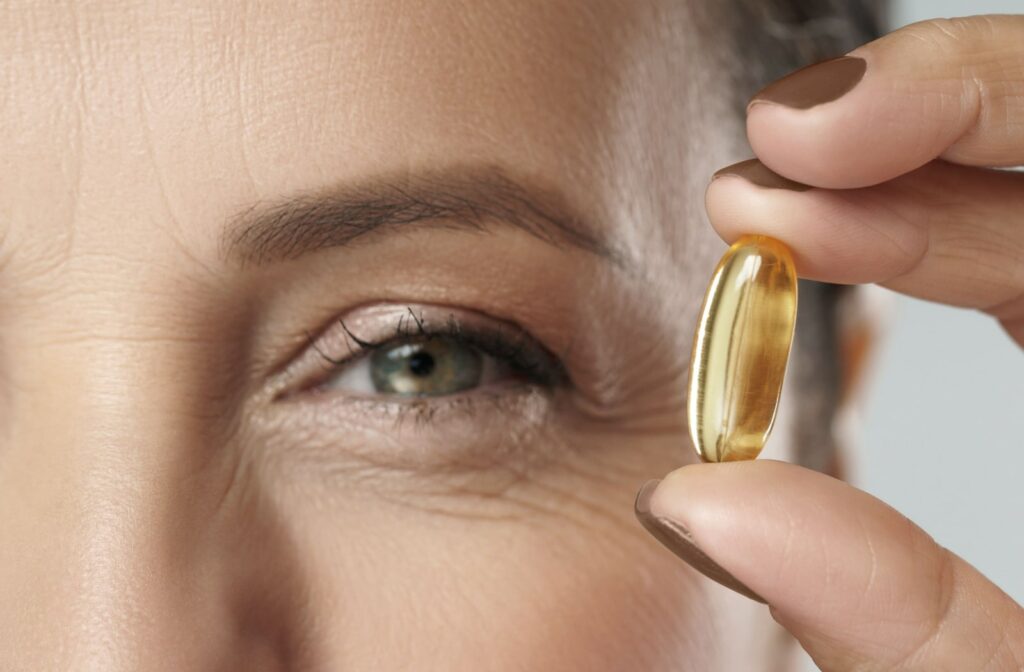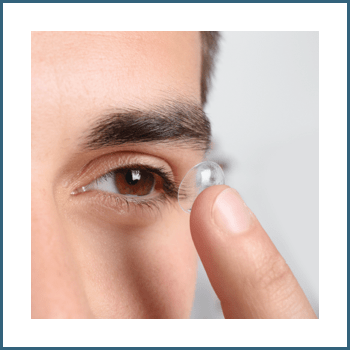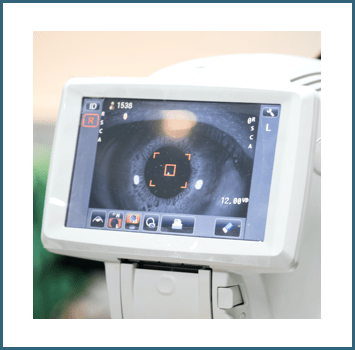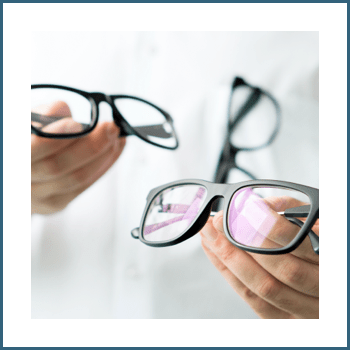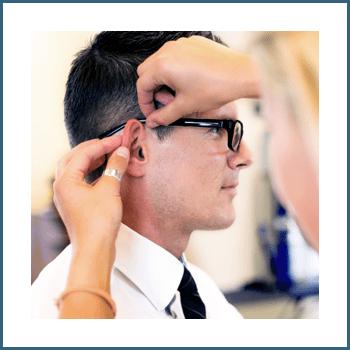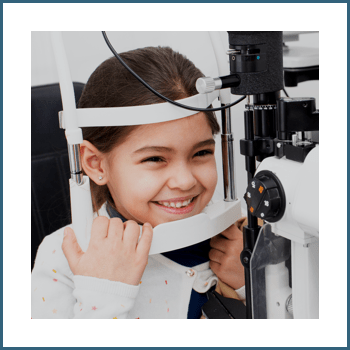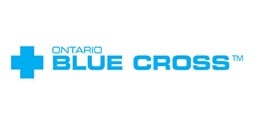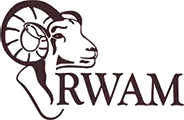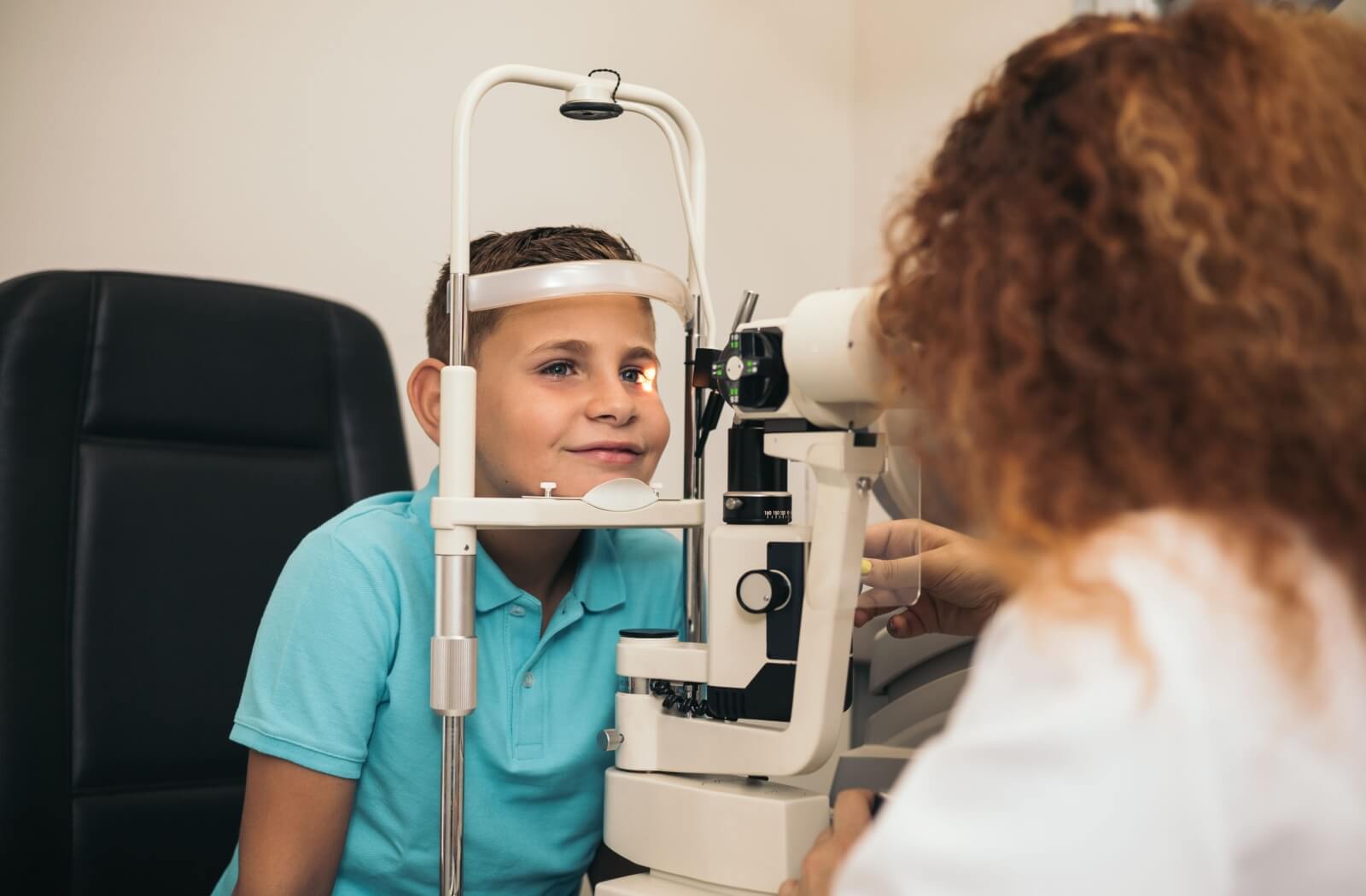Experiencing the discomfort of dry eyes can be more than just an irritation—it can significantly impact your quality of life. But what if the foods you eat could help you prevent and manage symptoms like stinging sensations? Now may be the time to book an eye exam and get personal advice on your eye nutrition.
We can guide you through various vitamins, minerals, and nutrients that not only support overall health but can be specifically beneficial for your eyes. We can even help you determine which foods to eat more of and help you consider your options for nutritional supplements.
The vitamins and nutrients that can help you manage dry eyes include:
- Omega-3 fatty acids
- Vitamin A
- Vitamin D
- Vitamin B12
Vitamins C and E are also essential vitamins you should consider adding to your diet to support your overall eye health.
Omega-3 Fatty Acids
Omega-3s are essential fats that play a pivotal role in cell membranes, including those of the eye. They can help with inflammation and may help reduce dry eye symptoms. Research shows that a higher intake of omega-3 fatty acids, particularly from fish, can help some people manage and avoid dry eye symptoms.
Food Sources of Omega-3s
Salmon is rich in EPA and DHA, forms of omega-3 that are easily used by the body. Flaxseeds contain ALA, another type of omega-3. Chia seeds and walnuts can also be easily added to your diet for an omega-3 boost.
Vitamin A
Vitamin A is central to maintaining healthy vision. It plays a significant part in the production of tears, which can be a significant factor in dry eye development. Be sure to speak with a doctor before taking any vitamin A supplements, as vitamin A can build up in your body over time.
Taking too much vitamin A could lead to:
- Nausea
- Headaches
- Skin irritation
- Joint pain
Food Sources of Vitamin A:
Carrots and sweet potatoes are bursting with beta-carotene, which the body converts into vitamin A. Spinach brings both vitamins A and E to your plate, and red bell peppers can also be a colourful and vitamin-packed option.
Vitamin D
Nicknamed the “sunshine vitamin,” vitamin D can be essential for your eye health. Vitamin D deficiency has been associated with dry eye and its unpleasant symptoms. Some findings highlight that vitamin D may protect against dry eye symptoms by reducing inflammation.
Food Sources of Vitamin D:
Fatty fish acts as a dual source of vitamin D and omega-3. Fortified dairy and plant-based milks can also make it easier to add vitamin D to your cereal or coffee. Eggs can also be an excellent source of vitamin D.
Vitamin B12
Vitamin B12 is known to support nerve function, which in turn promotes eye health. Vitamin B12 may improve the stability of the tear film, which can help some people manage and prevent dry eye symptoms.
Food Sources of Vitamin B12:
Shellfish like clams and mussels are high in B12. Fortified cereals and nutritional yeast can be beneficial alternatives for those following a plant-based diet. Some dairy products are also a source of B12.
Vitamin C
There is limited research linking vitamin C with dry eye prevention, but this powerful antioxidant can help the body form and maintain connective tissue, including collagen found in the cornea of the eye. Vitamin C also promotes the health of blood vessels in the eyes, leading to several benefits for eye health.
Food Sources of Vitamin C:
Fruits and vegetables are some of the most common sources of vitamin C. Consider adding citrus fruits like oranges and grapefruits to your diet. Red and green bell peppers are surprisingly rich in vitamin C, as well as strawberries and kiwi.
Vitamin E
Vitamin E is another nutrient that can support your overall eye health. It can protect the cells in your eyes from free radicals, which can help prevent age-related macular degeneration. There is some evidence that shows vitamin E may also help with preventing and managing dry eyes.
Food Sources of Vitamin E:
Nuts and seeds, such as almonds and sunflower seeds, can be an excellent source of vitamin E. Spinach and avocado can be the stars of a salad rich in vitamin E. Wheat germ is also rich in vitamin E and can be a great topper for yogurt or oatmeal.
Don’t Forget to Drink Enough Water
Dry eyes can also be a sign of dehydration. Drinking enough water is essential for your overall health, including your eye health. Aim to drink at least 8 glasses of water per day and increase your intake if you are active or if the weather is hot and dry.
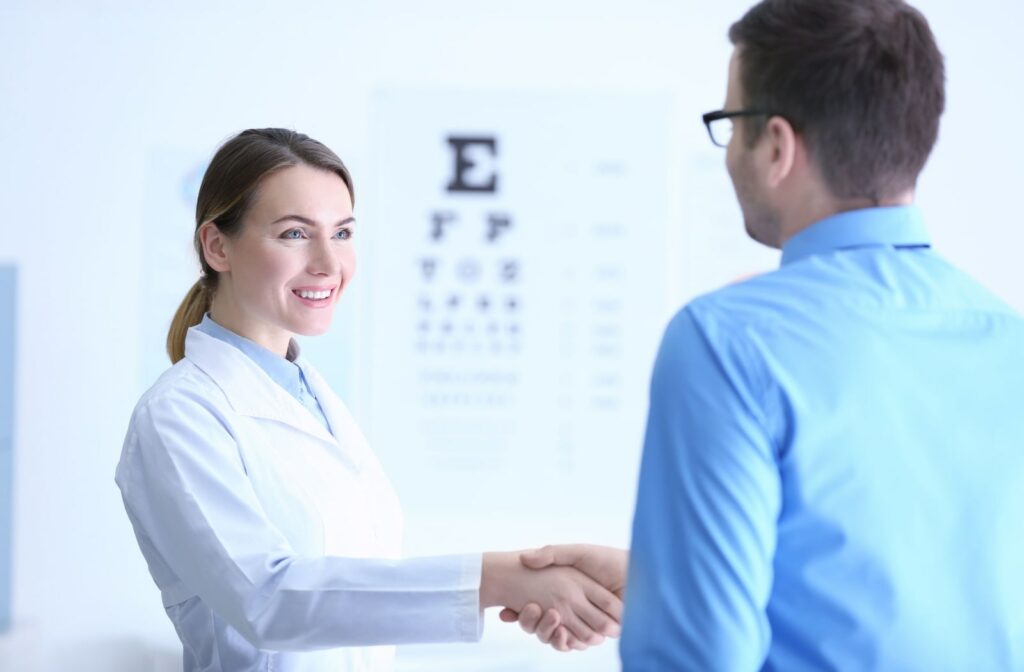
Eating Your Way to Healthier Eyes
Remember that the foods we choose to consume can affect our overall health, including our eye health, and nutrient-rich meals may hold the answer to helping make your eyes more comfortable and hydrated.
Of course, each person is different, and certain nutrients may affect you differently than other people. It is always a good idea to consult a healthcare professional before making significant changes to your diet or health regimen. Here at Westmount Optometrists, we can advise you on nutritious foods that may benefit your eyes and help you manage dry eye symptoms.
Book an appointment with us today, and be sure to ask questions during your visit. We’re here for you and your eye health. May your path to relief from dry eyes be delicious and nutritious!


